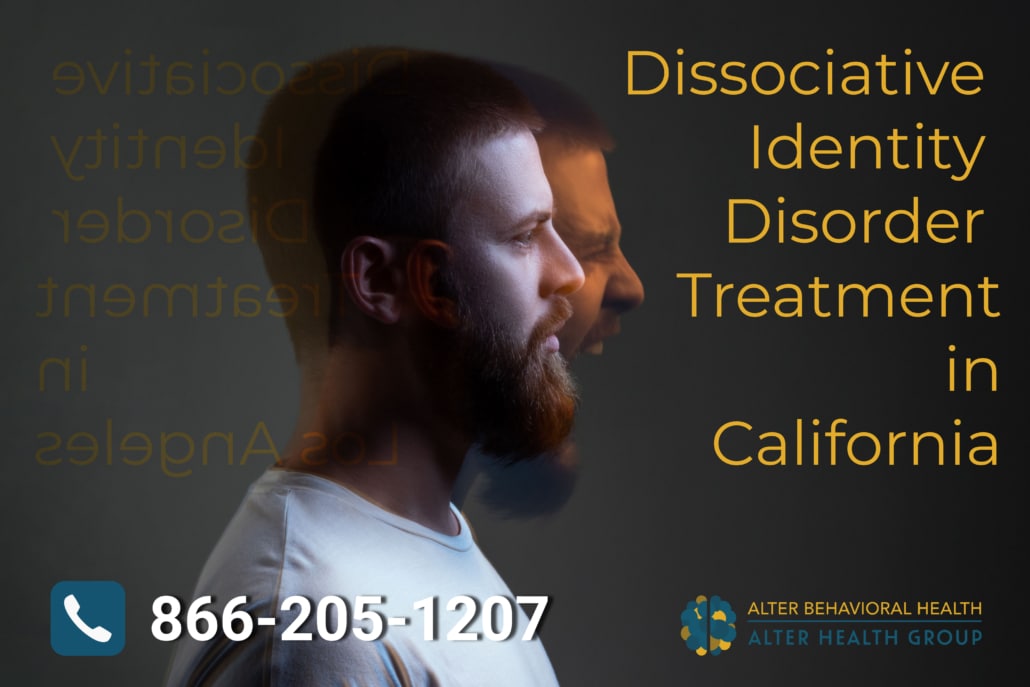Dealing with intense amounts of worry and/or stress can result in moments of dissociation. This condition comes as the mind’s natural coping mechanism of “pulling away” when one endures too much pressure too often. Dissociative disorders are defined as mental illnesses “characterized by an involuntary escape from reality.” This cognitive pullback looks like a “disconnection between thoughts, identity, consciousness, and memory.”
It is estimated that roughly 75% of individuals experience dissociation at some point during their lifetime. However, only about two percent meet the requirements to be diagnosed with a chronic dissociative condition.
What Is Dissociative Identity Disorder (DID)?
Dissociative identity disorder (DID), formerly known as multiple personality disorder, is a complex psychological condition. It’s a severe form of dissociation characterized by amnesia-like symptoms, where individuals experience recurrent memory gaps and cannot recall personal information, recent events, or essential facts.
While there are various forms of dissociative disorders, DID stands out because of the presence of two or more distinct identities in an individual. These identities appear as unique personalities that co-exist within the same person, each attempting to assert control at different times. Each identity often has a separate name and displays independent likes, dislikes, traits, and mannerisms.
Historically, women predominantly received diagnoses for such conditions. However, recent research, including studies conducted in areas like Los Angeles, has illuminated the prevalence of Dissociative Identity Disorder Treatment in Los Angeles and shown that DID occurs in men as well. According to some data, men might represent a smaller percentage of diagnosed cases not because they experience the disorder less, but because they are less likely to seek professional care. Consequently, men with dissociative tendencies may find themselves in legal situations more often than in the healthcare system, underscoring the importance of accessible treatment options for all.
Co-Occurring Disorders at a Glance
Co-occurring disorders, also called comorbid conditions, occur when two or more conditions occur simultaneously within an individual. Having multiple conditions leads to interactions between disorders that often irritate each others’ symptoms. Despite these interactions, the conditions remain independent of each other. DID is widely known to co-occur with other mental health disorders.
Comorbidity Among Individuals With DID
There are many comorbid conditions associated with DID. Proper diagnosis is essential before beginning any form of treatment. Facing any mental health disorder can be very challenging, especially without guidance from experts in the field. Below are some of the most common conditions that co-exist in individuals who face DID.
Borderline Personality Disorder (BPD)
BPD has been diagnosed in a range of 30%-70% of individuals with DID. This disorder generally begins during a person’s adolescent years or early adulthood. It is defined by the National Education Alliance for Borderline Personality Disorders (NEA BPD) as “a serious mental illness that centers on the inability to manage emotions effectively.” Its primary symptoms involve an individual’s emotions. These symptoms may vary depending on the type of BPD diagnosed.
Post-Traumatic Stress Disorder (PTSD)
Given that both DID and PTSD are trauma-related conditions, it comes as no surprise these are well-known comorbid conditions. PTSD is a serious mental health disorder that is the result of undergoing or witnessing a traumatic circumstance.
It is a common misunderstanding that PTSD is exclusively found in war veterans. However, this condition can develop in anyone after experiencing a traumatic event. The most common symptom is extreme terror, which initiates a “fight or flight” reaction in the body to prevent personal harm.
Depression
Studies have shown depression to be very common among DID patients. An estimated 280 million people across the globe face depression. It comes in various types and has also been called clinical depression. While the different forms of depression have distinct markers that individualize them, all variants involve a constant sense of unhappiness or sorrow. Major depressive disorder (MDD) is the most common form found to co-occur with DID.
Treating DID and Comorbid Conditions
Dissociative disorders like DID and their co-existing conditions can be treated. All it takes to get started is getting in touch with a professional to initiate the diagnosis process. This typically involves an initial patient intake with a physical and mental evaluation. Once a diagnosis has been established, the next step is to begin treatment. Treatment programs vary depending on an individual’s unique needs.
Trauma-related conditions can often be treated with medication. These prescriptions can ease the symptoms that trauma inflicts on a person. Medicine can also aid in treating comorbid conditions like depression and BPD. Antidepressants such as selective serotonin reuptake inhibitors (SSRIs) can assist by increasing the level of serotonin in an individual. This boost helps control mood and appetite. It has also been known to aid in sleep troubles associated with DID.
Psychotherapy is another highly effective treatment for DID and co-occurring disorders like depression, BPD, and PTSD. The most common form of therapy for these disorders is cognitive-behavioral therapy (CBT). This type of therapy helps the individual learn how to recognize distinct triggers and damaging thought habits. Then, the person can work through these matters as they go and eventually retrain the brain to higher positivity and productivity.
Achieving a Happy Future
When DID takes over and its comorbid conditions are impacting an individual’s everyday life, it’s important to reach out for help. Everyone deserves a life of happiness without the weight of mental health concerns. By being proactive and taking the proper steps to better themselves and their mind, individuals ensure a future that they can genuinely look forward to living.
The challenges of DID can be especially difficult when dealing with other mental health concerns. Conditions like depression can pull you down, making you feel like giving up. Your story matters to us. At Alter Behavioral Health, we believe your future chapters in life can be beautifully written. Never give up and never give in. We can help you and be the rock you need to build a solid foundation for your mental health journey. Let us guide you through your DID and comorbid disorders toward a bright and happy future. Chapter one starts with one phone call that will change your life for the better. Call us today at (866) 691-4386 and let’s write the rest with you.




